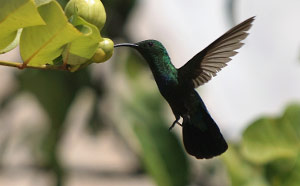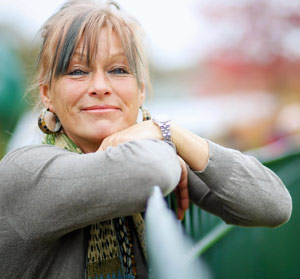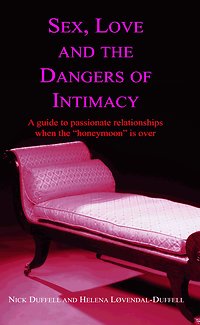Looking for love in a digital world
After completing a full education in my beautiful native Denmark, I decided it was time to take a break from learning within a classroom environment and to explore more of the world for myself.
"We should not be ashamed of our mistakes, only of our failure to make something beautiful out of them" – David Whyte, Three Marriages
During my 20’s I travelled a lot, spent extensive time in political and spiritual communities around the world, and explored the alternative scene of ecology, psychology and spirituality. Eventually I settled in London in the early ‘80’s, and became a social worker whilst training to become a Psychotherapist. My travelling time had underscored the human need to seek meaning and purpose in our existence, and my choice of training at the time led me to a transpersonal approach.
As soon as I started working with clients, it became abundantly clear to me that sex, love and intimate relationships were key issues in people’s everyday lives. While my private clients tended to be financially and socially more fortunate than the people and families I’d met as a social worker, the fundamental concerns in their lives were all connected to these three aspects.
No amount of money or prestige, knowledge or power, can make a life meaningful. If our life is blessed with any of this, it helps us enormously to express ourselves in the world and gives us choices not available to the many. But ultimately, it will not give meaning to our lives.
Everyone is looking for love
My first book Sex, Love & the Dangers of Intimacy- a guide to passionate relationships when the ‘Honeymoon” period is over (HarperCollins, 2002) was written after years of working with couples, individually and in groups - men and women who love each other, are committed to their relationship and some busy raising a family.
By the time I see them, however, they are almost ready to give up. Their loving feelings have been replaced with disappointment, hurt and anger; their bedroom is no longer the passionate hothouse they both enjoyed in their early days together. Instead, they are caught up in despair, entrenched patterns, loneliness, contempt and a lack of any physical touch. Their life together is an emotional minefield, leaving both partners battling fatigue. How can something that started so beautifully, turn that ugly?
The themes of the book are as relevant now as they were when it was first written; the re-published version (Lone Arrow Press, 2012) is selling more than ever. I believe it’s because, while few things in life are more important than our intimate and sexual relationships, we are not taught that maintaining it is something that has to be learned or something we grow into. So when our experiences don’t live up to the promised expectations, it’s easy to loose heart and turn away.
We have received hundreds of letters from people around the world, all expressing relief at learning that their issues and struggles are not simply due to their personal failures. As a therapist and trainer - and a woman in a relationship with a man - I know that the paradoxical tension between love and sex is a common dilemma that many, maybe even most of us, struggle with – not just our clients and students!
But why is something so natural and fundamental to life, so difficult to sustain?
Living with lust and passion is an attitude to life, not a lifestyle; it is not exclusively about sex, it includes it.
Sex can be a celebration of intimacy, but it is also the place where many of our emotional and relational problems reveal themselves.
Being happy in your own skin and fully at ease with your sexuality is not the norm in our current culture. Despite our revolution in freedom of speech and information, in the nearly three decades of working with both genders I have not encountered many truly fulfilled and sexually liberated men and women. If anything, misguided expectations of love and intimate relationships, the pressure to fit the perfect body image, to compete with or mimic the sexual performances depicted in pornography, all seem to be terrorizing a vast proportion of us.
If you stop and think about it, you’ll realize that your associations with love and sex are being constantly influenced by cultural messages. You are bombarded with pressure from family, society and cultural sources about what aspects of you are deemed acceptable, wanted and desired – and what are not! These messages affect you deeply, even if you reject them.
The sexual liberation movement was hijacked by the commercial world: the fashion industry, music industry, sex industry, drug industry, cosmetic industry, film industry, advertising, pop-psychology – each of them all cashes in on our longing for a more fulfilling and meaningful existence.
Everything is now sexualized. We are commercially brainwashed by images of how to look, feel and behave. Men and women share the fear of not living up to what A Real Man or A Real Woman is. We can all fall prey to the belief that… if only I was slimmer... had fuller breasts... a six-pack stomach... more defined biceps… a bigger penis... different labia, etc. then…
Then what?
We are being led to believe that feeding an image and having sex without love is liberating us. This is not sexual freedom!
Being a complete human being is a complex dance between the different aspects that make us human: our feelings, body, mind and soul. Our sexuality is part of this bigger picture. It does not stand by itself. Sex isn’t just something for special occasions, or something to tiptoe around. It is an integral part of life. What is more natural than sharing love, expressing your desires and accepting someone else’s?
The new taboo is not sex, but tenderness and heartfelt intimacy.
Fulfilling human sexual relations hang in the balance between sexual assertion and sexual tenderness – for both genders and whatever your sexual orientation. Being sexually alive has little to do with the right body shape, or the right partner. It is all about one's self-concept, self-embodiment, and attitude to life; Most of the issues we struggle with have one underlying common element: we experience ourselves as square pegs trying to fit into round holes!
It matters how we live our lives
It’s easy to believe that only special and important people in the world have the power to make any lasting mark on history. I am convinced that this is not the case. Leaving all the responsibility to our political or spiritual leaders is only an echo of expecting our parents or partners to make it all better. It can give us an excuse to blame, but in the final analysis, it simply allows us to sign away responsibility for the coming generations.
Adolescents naturally look to the famous and beautiful for role models, as idealised images in their search for identity. But unless this is backed by the experience of contact with ordinary men and women whom they admire and are excited by, it won’t sustain them in living a rich and purposeful life.
Young people have an urgent hunger for those who are not afraid of life, sex, and relationships. They are affected by us, and how we ‘walk our talk’ in everyday life impacts them. Even unspoken messages are passed on to our children and the young people we meet. If we can go beyond the epidemic of separation and resignation in relationships to discover something valuable, we give our young people a chance to feel anchored somewhere.
When men and women find a purpose to their struggle, the work they do can be transformative. It may not be too much to propose that if this could happen en-masse, humanity might discover a new key, a new solution, which could be as life changing as the digital revolution.
It is us, men and women today, who co-create tomorrow’s world. The vision we hold, and how we apply our skills, will determine whether the unresolved issues of countless generations may be redeemed, and whether the excessive passing on of the ‘sins of the fathers’ may be stemmed.
This is an excerpt from the book "Sex, Love and The Dangers of Intimacy" by Helena Løvendal and Nick Duffell.
This widely acclaimed book was originally published in2002 by HarperCollins and has been translated into several languages. It was updated for a 10th Anniversary Edition, published by Lone Arrow Press in 2012.
Order directly from Lone Arrow Press
Price £15.00 + p.&p.
Click here to read a free sample chapter before purchasing.





